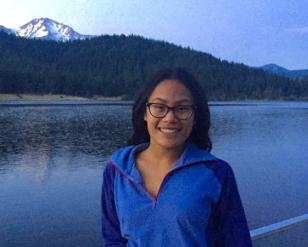“I think I will gain skills as I continue to learn and grow on how to be better when I’m presented in these situations...being unsure keeps you from speaking up sometimes… we just need to be open to comments and feedback,” said Jamie Padilla as she explains how she addresses white fragility when it pops up in real time.
This event, which was hosted by the Community Action Partnership of Sonoma County, focused on acknowledging white privilege in everyday life. Usually with Conversations on Race events, people from all different racial backgrounds come and talk, but for this conversation, it was a little bit different. For this conversation, it was a panel of all white people. It was a tough decision to make, but it was a group decision. They thought by having an all white panel, they could talk about white privilege on their own terms without bringing in other races.
With this, the panelists spoke about their experiences and awareness of white privilege in their family life as well as in their community. This conversation was moderated by Johnny Nole (President of Board of the Directors of Community Action Partnership Sonoma County). The panelists for this conversation included: Serene Cooper (neighbor and ally for support), Jamie Padilla (Board Member for Board of Community Action Partnership and Trustee for the Bellevue Union School District Board), Steven David Martin (Actor and Director but is the Artistic Director of the Raven Players), Leslie Graves (Hosts events in Sonoma County, specifically in Santa Rosa).
Nolen started the conversation by asking when the panelists became aware of their white privilege. David Martin responded saying that when “I was about to direct a production of Shakespeare’s Comedy of Errors.. In the theater world there was this movement called colorblind casting, which all it meant was… cast the best actor for the role, no matter what their color was.” He then goes on to explain that “I talked to an actor, a Black friend of mine, and he said “...if you’re colorblind, you can't see the color, which means you can’t see me.”” Martin realized “that in hindsight that it was a white privilege, almost like a white savior kind of thing, I was the white male director, who got to decide which colors I was going to be blind to, I think it took me years to actually understand where he was coming from.” I think David Martin’s story is really interesting. I’ve attended a few theater productions at The Old Globe, which is in San Diego and I’ve never heard of color blind casting before. Regardless of the actors skin color, I think that directors should physically see them, instead of going off of what they hear them say.
Nolen then asks the panelists how they process complex emotions regarding their white privilege in a healthy way and how they overcome it. For the most part, the panelists all agreed that they all felt huge amounts of guilt and shame. They are all becoming aware and being careful of what they say around other people in their personal life as well as in the community. “I don’t have any great tips… sometimes the fear and frustration can move us forward and move us into action, but really paying attention to when I’m feeling that shame, what do I do?” said Cooper. She then explained that she’s working on talking to other people about how she can overcome white privilege.
The panelists also brought up the topic of “white media.” Nolen asked the speakers to talk about how they have identified racial imbalances in the media and entertainment. Graves mentioned that the media is very imbalanced. She felt that people need to realize and understand that white media is in all types of media. As a result of this, Graves explains that “the reason why it’s there is because media is set up in this capitalistic society where it’s selling you a product, and the people that hold the goods are predominantly white males in that system. They’re the ones that are prospering off of this.” With “white media” being everywhere we look, Graves said that she turns to Black Information Network to get a different perspective. She said that media like this puts Black and Brown voices first.
After hearing all of the panelists stories, I definitely give them huge kudos for not only acknowledging their white privilege but also being comfortable enough to talk about it on Facebook Live. Overall, I really enjoyed this conversation and getting a better understanding of their viewpoints. With this being said, I was a little bit uncomfortable listening to this conversation. I say this because it kind of surprises me that white people are now having conversations about their privilege, due to the racial injustice that we are currently going through. White privilege is something that is not often talked about and many white people don’t recognize it unless it’s in conversation. I think that it’s really important for white people to not just recognize it when it comes up, but recognize it all the time, regardless of the situation.
To view current or past conversations on race, click here.


